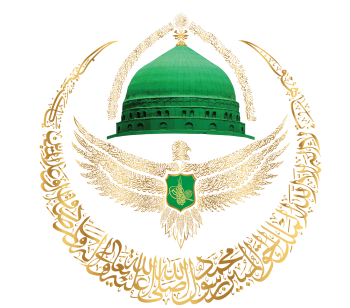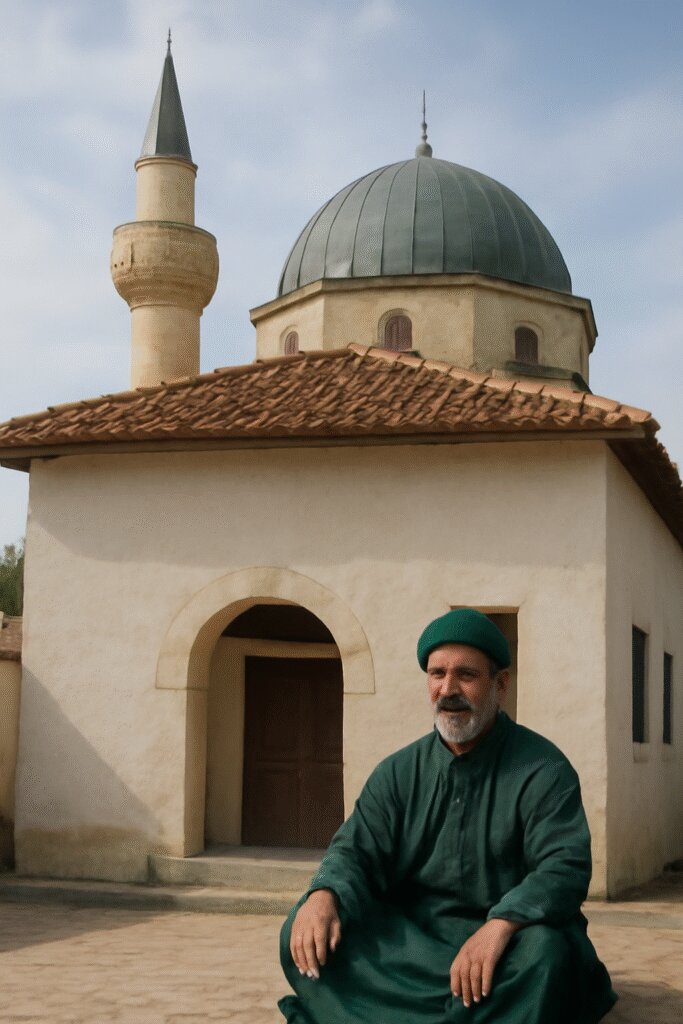The Tekke in the Path
The tekke is a house of remembrance and is considered one of the spiritual centers wherever it is located. It represents the primary starting point for the path and its guidance towards the common good and spreading righteous actions among Muslims everywhere.
Houses of remembrance, or tekkes, are one of the most important pillars in the belief system of the Kasnazani Sufi order. They have numerous visible and spiritual benefits that cannot be measured in the life of a practicing Muslim. For this reason, the sheikhs of the order (may God bless their secrets) have always been concerned with building and maintaining tekkes wherever possible, as part of the Muhammadan Sufi inheritance passed down from one Sheikh to another.
The Quranic Reference to the Concept of Tekke
The foundation of monotheism in Islam is the utterance of the phrase “La ilaha illallah” (There is no god but Allah). Since tekkes are the designated places for this worship, that is, the remembrance of Allah at all times, as well as for performing obligatory and Sunnah prayers, they are truly houses of remembrance as mentioned in the Quran in the verse: “In houses (of worship) which Allah has permitted to be raised, and that His name is mentioned therein. Exalted in the morning and the evening.” (Quran 24:36).
Thus, tekkes, as defined by the Quran, are houses for remembrance. They were established with the permission of Allah to practice all Islamic rituals and ceremonies aimed at elevating a Muslim to the highest levels of spiritual perfection, ultimately drawing them closer to Allah.
The Prophetic Reference to the Concept of Tekke
There are several prophetic origins for the concept of the tekke in the pure Sunnah, where meanings can be derived from many hadiths. Among them is the saying of the Prophet ﷺ: “When you pass by the meadows of Paradise, graze in them.” He was asked: “What are the meadows of Paradise?” He ﷺ said: “The circles of remembrance” (Sahih Muslim). It is known that the circles of remembrance in Islam are the houses of remembrance, and therefore, tekkes are considered the gardens of Paradise on Earth.
Additionally, the Prophet ﷺ, narrating from his Lord, said: “There is no god but Allah; it is My fortress, and whoever enters it will be safe from My punishment.”
Therefore, since pure monotheism is considered the fortress of Allah, and tekkes are the places for establishing this monotheism, it stands as another proof of the legitimacy of tekkes in Islam. When a servant retreats to the tekke with a sincere heart and a high aspiration, they will be in the fortress of Allah, in the embrace of His vast mercy, and in the sight of His never-sleeping care.
Sayings of Sheikh Muhammad al-Kasnazani About Tekke
According to Sheikh Muhammad al-Kasnazani, the tekke is a place of remembrance, a place where Allah’s mercy is manifested, as Allah says: “I am with the one who remembers Me.” The tekke is a place where one speaks to Allah through remembrance, not a place for worldly or political discussions.
It is a place of unity and monotheism, and it is a spiritual school aimed at teaching the followers to draw closer to Allah, preparing their souls to reach the degrees of sainthood and eternal life with Allah. The tekke is a reformative spiritual school where faith and righteousness are taught through practical instruction. It is also an ethical school that seeks to purify souls and cleanse hearts from their impurities, while also being a religious school for teaching Islamic laws and Sufism. It also functions as a guidance school for teaching the principles of enjoining good and forbidding wrong.
The tekke is the real home for the seeker, linking them to the Hereafter and pushing them to prepare for it. Ultimately, it is *Paradise*, the place where the gardens, beauty, and bliss of Paradise are manifested.
The Tekke: The First and Last Home for the Seeker
As Sheikh Muhammad al-Kasnazani says, the tekke is the first home a seeker goes to when they want to return to Allah, and it is the last home they reach when they have achieved their goal, needing no other home thereafter. It is a place of generosity, nobility, and prophetic kindness, where it represents the place for the circles of remembrance and is regarded as a place where prayers are answered, as mentioned in the Quran:
“Herein for you is all that your souls desire, and herein for you is all that you ask for.” (Quran 41:31)
The tekke is the place of divine spiritual safety, and for this reason, seekers must continuously attend it so their hearts may be illuminated with the remembrance of Allah and His divine light.
The Tekke: A Place for Divine Manifestation
The tekke is regarded as a place for divine manifestation, where Allah opens the hearts of the seekers to lights from His mercy. In this place, divine manifestation occurs, which strengthens faith and enhances piety in the hearts of the travelers.
The Tekke and the Heart
The tekke is not merely a physical space, but it is the heart itself. When the heart becomes empty of everything but the remembrance of Allah, it becomes a spiritual tekke where the divine light and the Muhammadan truths manifest.
The Tekke and its Relationship with the Ahl al-Bayt (Household of the Prophet)
In interpreting the verse, “In houses (of worship) which Allah has permitted to be raised, and that His name is mentioned therein,” the Prophet ﷺ was asked: “Which houses are these?” He ﷺ replied: “My house, and the house of Fatimah and Ali.” This indicates that tekkes and the houses of the Prophet’s family are places for raising the name of Allah, and the remembrance of Allah continues in these houses until the Day of Judgment. Therefore, tekkes, which are the houses of Allah, must be overseen by the Ahl al-Bayt because they are the people of remembrance and chosen ones, and the verses of remembrance were revealed to them.
History of the Rise of Khanaqahs in Islam
Khanaqahs spread in the lands of Persia, Syria, and Egypt in the fourth century Hijri and were designated for the Sufis, where they practiced worship and remembrance. They were usually built in cities and centers, resembling mosques, but contained rooms for the poor and Sufis, where they performed their dhikr and spiritual practices.
Notable Khanaqahs:
- Khanaqah of Said al-Saada: Founded by Sultan Salah ad-Din.
- Khanaqah of the Beibers: Built by Mir Rukn ad-Din Beibers in 709 AH.
- Khanaqah of Qosoon in the cemetery.
- Khanaqah of Sheikho founded by Prince Saif ad-Din Sheikho al-Omari in 757 AH.
Conclusion
The tekke represents the spiritual place where the seeker immerses in remembrance, and it is considered the house of Allah where unity is realized. It is a spiritual school and religious center contributing to the purification of souls and the cleansing of hearts. Additionally, it serves as a center for the manifestation of divine spiritual safety and divine light. The tekke is the place of remembrance and unity, the beginning, and the end of the spiritual path for the seekers in the path of Allah.
References:
Sayyid Sheikh Muhammad Al-Kasnazan Al-Husseini – The Kasnazani Encyclopedia in What the People of Sufism and Gnosis Have Agreed Upon

